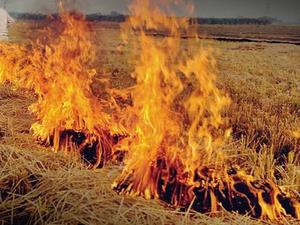( MENAFN - IANS) New Delhi, Nov 3 (IANS) government interventions in India and Pakistan may be able to curb the illegal practice of crop burning and reduce deadly air pollution in South Asia, a new study has said. According to the study, co-led by US-based Brown University researcher Gemma Dipoppa and published in the journal Nature, air pollution, driven in large part by practices like crop burning, contributes to 2 million deaths a year in South Asia and persists as a public health emergency. As part of the study, the researchers also examined the effects of crop-burning pollution on infant and child mortality and estimated that that 1.
5 to 2.7 deaths per 1,000 children could be prevented if action were taken to reduce crop fires. “This is a very clear health emergency, and we wondered, 'Why isn't the government able to address this challenge, which is visible and extremely damaging for people?'” said Dipoppa, an assistant professor of political science at Brown Universuty.
“We decided to study the aspect of government intervention and in particular the administration of the state that is in charge of reducing air pollution from a big-picture point of view,” said Dipoppa, who co-authored the paper with Saad Gulzar of Princeton University. Through their analysis of a decade of wind, fire and health data from satellites and surveys, Dipoppa and Gulzar found that government officials in India and Pakistan were more likely to reduce crop residue burning when its negativ.


















